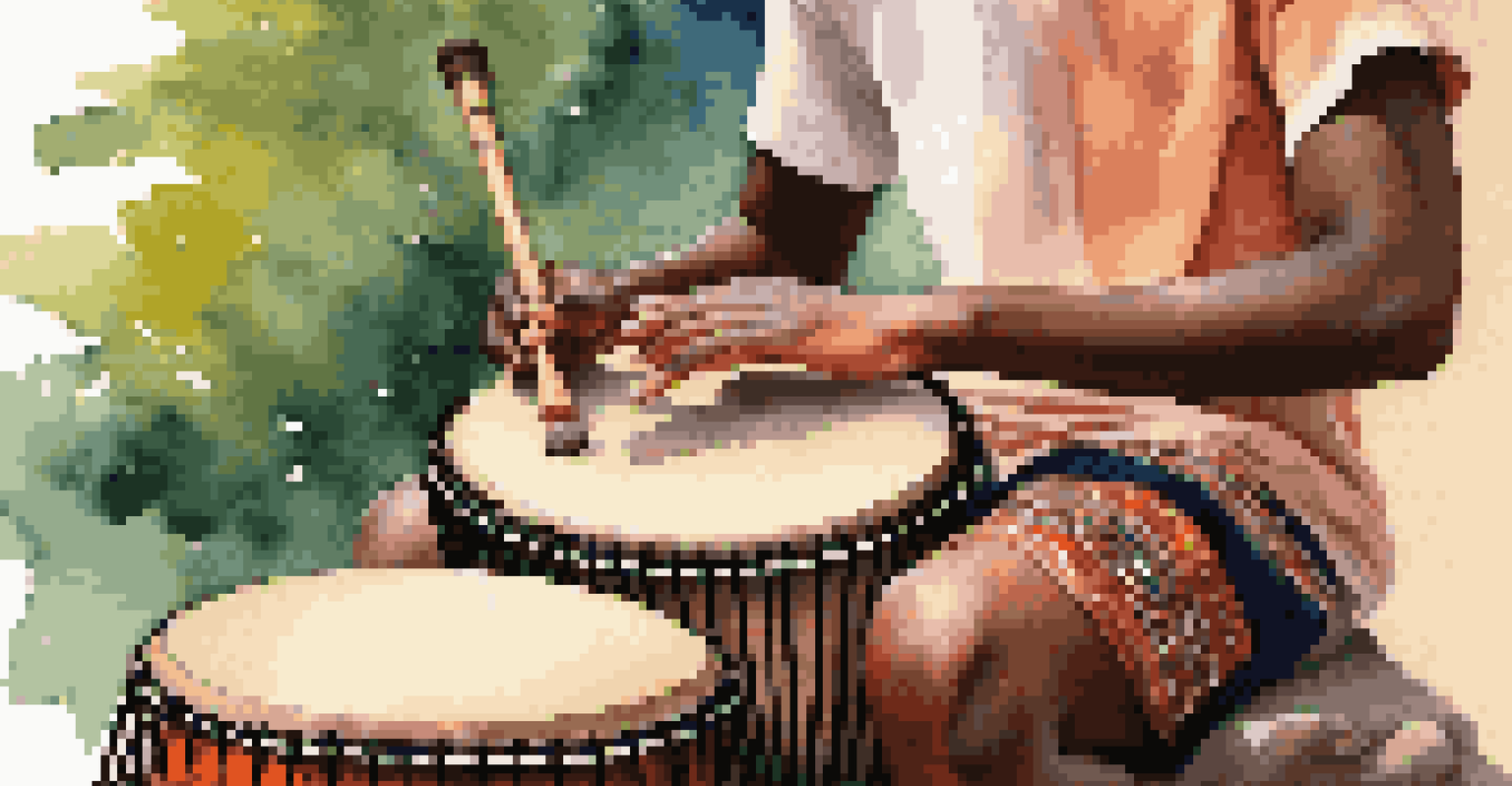The Importance of Music Education in Cultural Heritage Preservation

Understanding Cultural Heritage and Its Significance
Cultural heritage encompasses the traditions, customs, and artistic expressions of a community. Music, being a universal language, plays a pivotal role in this tapestry. It not only reflects the values and beliefs of a culture but also serves as a means of storytelling across generations.
Music can change the world because it can change people.
Preserving cultural heritage is essential for fostering identity and community cohesion. When people engage with their cultural roots, they feel a stronger sense of belonging. Music education helps individuals connect with their heritage, allowing them to appreciate and uphold these traditions in a modern context.
Furthermore, understanding the significance of cultural heritage can inspire individuals to take an active role in its preservation. Through music education, students learn about the historical contexts of different musical forms, which can ignite a passion for celebrating and protecting their cultural backgrounds.
The Role of Music Education in Cultural Transmission
Music education serves as a bridge that connects the past with the present. When students learn traditional songs and instruments, they not only acquire musical skills but also absorb the stories and histories tied to those pieces. This transmission of knowledge is crucial for keeping cultural narratives alive.

For instance, indigenous music often carries lessons about nature, spirituality, and community. By incorporating such music into educational curricula, teachers can provide students with a deeper understanding of their heritage. This process fosters respect and appreciation for the complexities of cultural identities.
Cultural Heritage Fosters Identity
Engaging with cultural heritage through music education strengthens community bonds and personal identity.
Moreover, as students engage with their musical heritage, they become ambassadors of their culture. They share their learning with peers and family, extending the impact of music education beyond the classroom and contributing to a broader cultural dialogue.
Enhancing Creativity Through Musical Expression
Music education not only preserves cultural heritage but also encourages creativity. When students explore traditional music forms, they are inspired to experiment and innovate. This blend of cultural respect and creative freedom can lead to new artistic expressions that honor the past while looking towards the future.
Cultural heritage is the bridge that connects us to our past, and music is the language that helps us tell those stories.
For example, a student learning traditional African drumming may combine it with contemporary elements, creating a unique fusion that resonates with both their heritage and modern influences. This kind of creative exploration enriches the cultural landscape and keeps it dynamic.
By fostering creativity, music education empowers individuals to express their identities in diverse ways. This, in turn, encourages a culture of innovation that is rooted in respect for cultural traditions.
Building Community Through Shared Musical Experiences
Music has an innate ability to bring people together, and music education plays a key role in fostering community bonds. Whether it's through school ensembles, community choirs, or cultural festivals, shared musical experiences create opportunities for collaboration and connection.
These communal activities allow individuals from different backgrounds to come together, share their stories, and celebrate their diverse heritages. As they perform and learn together, they build relationships that strengthen the fabric of their community.
Music Education as Cultural Bridge
Learning traditional music connects students with their heritage, preserving cultural narratives for future generations.
Additionally, community engagement through music education can lead to greater appreciation for cultural diversity. It encourages students to learn about and respect traditions that may differ from their own, promoting a sense of unity in diversity.
Challenges in Music Education and Cultural Preservation
Despite its importance, music education often faces challenges that can hinder cultural preservation efforts. Budget cuts in schools frequently lead to the reduction or elimination of music programs, limiting students' exposure to cultural music forms. This can create a gap in understanding and appreciation for their own heritage.
Moreover, the rapid globalization of music can sometimes overshadow traditional forms. As popular music becomes more accessible, younger generations may gravitate towards these trends, potentially neglecting their cultural roots. This shift can dilute the richness of cultural heritage and its transmission.
Addressing these challenges requires a concerted effort from educators, policymakers, and communities. By advocating for music education and promoting cultural awareness, we can ensure that future generations continue to celebrate and preserve their musical heritage.
Incorporating Technology in Music Education for Cultural Heritage
In today's digital age, technology presents unique opportunities for enhancing music education and cultural heritage preservation. Online platforms and resources can provide students with access to a wealth of traditional music from around the world. This can broaden their understanding and appreciation of diverse cultures.
For instance, virtual workshops with musicians from various cultural backgrounds can enrich students' learning experiences. By interacting with artists and learning directly from them, students can gain insights into the cultural significance of different music forms.
Technology Enhances Cultural Learning
Digital tools provide new avenues for exploring diverse musical traditions, enriching students' cultural appreciation.
Additionally, technology can facilitate collaborations across geographic boundaries. Students can share their musical creations and cultural stories through social media, creating a global dialogue that celebrates cultural diversity and encourages the preservation of heritage.
The Future of Music Education in Cultural Heritage Preservation
Looking ahead, the future of music education will play a crucial role in cultural heritage preservation. As societies continue to evolve, integrating traditional music into modern curricula will be essential for maintaining cultural continuity. This ongoing dialogue between past and present is vital for the survival of cultural identities.
Moreover, as awareness of the importance of cultural heritage grows, more educational institutions are recognizing the need to prioritize music education. By investing in programs that celebrate cultural diversity, schools can help instill a sense of pride and responsibility in their students.

Ultimately, by cultivating a love for music and an appreciation for cultural heritage, we empower future generations to become stewards of their own traditions. This commitment ensures that the rich tapestry of our world’s cultures continues to thrive.